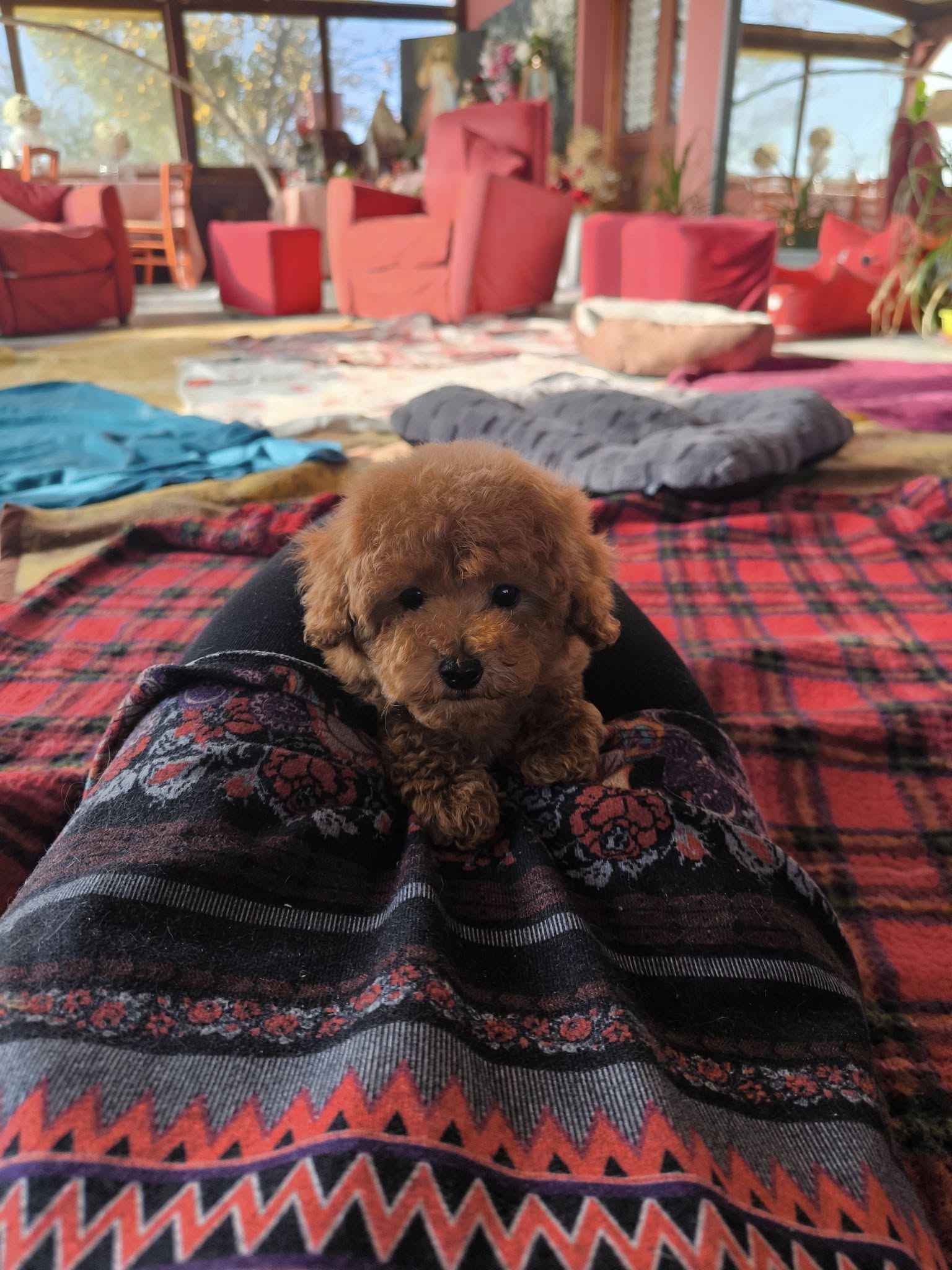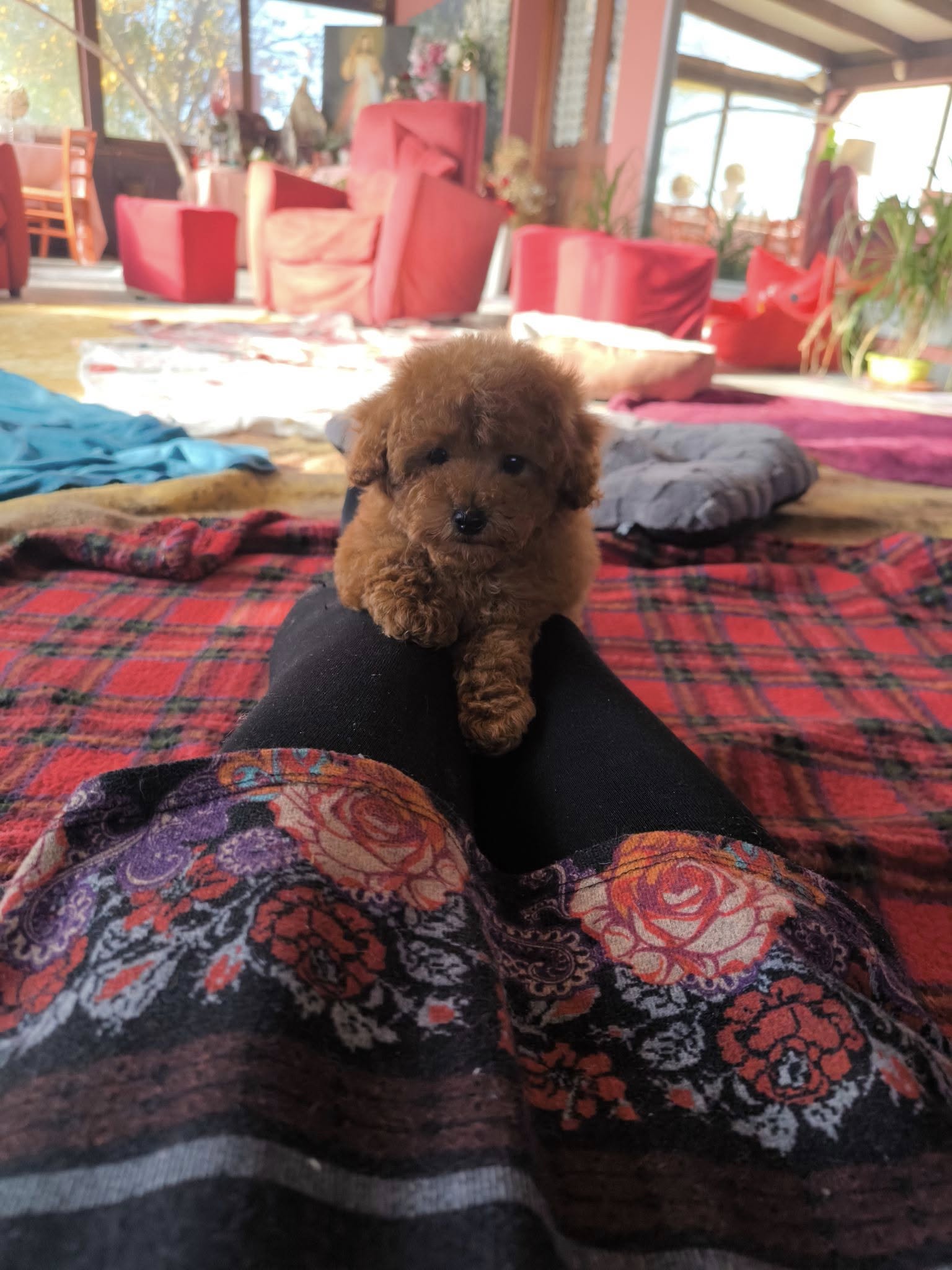Toy Poodle Nutrition: Ensuring Its Health and Well-Being
Introduction
The Toy Poodle is one of the most beloved breeds due to its intelligence, liveliness, affection, and beauty.
However, proper nutrition plays a crucial role in keeping it healthy and in harmony with us, especially if you want to ensure a shiny, well-groomed coat, which is a key feature of its appearance, and maintain its bright, expressive eyes.
On this page, we will explore the ideal diet for the Toy Poodle, including practical tips and the best choices for kibble.


Characteristics of the Toy Poodle and Its Metabolism
The Toy Poodle has a very fast metabolism and a small stomach, so it requires frequent and balanced meals. This breed needs a diet rich in essential nutrients to support its energy and prevent health problems.
Essential Macronutrients
Proteins: Essential for Coat and Muscles
Approximately 75% of a poodle’s coat is made up of proteins. A protein deficiency can lead to hair loss and skin fragility.
Healthy Fats: Omega-3 and Omega-6
These fatty acids contribute to skin and coat health. Omega-3s help reduce inflammation and combat allergies, while Omega-6s stimulate hair growth.
Carbohydrates: Balance Consumption
Toy Poodles do not have a high carbohydrate requirement, but a small percentage can be useful in maintaining steady energy levels.
Recommended Foods
- High-quality proteins: chicken, turkey, beef, fish
- Safe vegetables and fruits: carrots, zucchini, seedless apples
- Natural supplements: salmon oil, flaxseed oil for a shiny coat
Foods to Avoid
Avoid harmful foods such as chocolate, dairy, bones, processed meats, and grains, as they can cause digestive problems and intolerances.
Best Kibble for a Toy Poodle
The best kibble for Toy Poodles should be grain-free, rich in animal proteins, and free from chemical additives. Recommended brands are those specifically formulated for small breeds with natural ingredients.
Homemade Diet vs. Kibble
- Homemade diet: Allows complete control over ingredients but requires careful nutrient balance.
- High-quality kibble: More practical and already balanced for the dog’s nutritional needs.
Feeding a Toy Poodle Puppy vs. an Adult
Puppies require more frequent and nutrient-rich meals to support growth. After the first year, they can transition to an adult diet with two meals per day.
Healthy Feeding Routine
- Frequent meals: 3-4 meals for puppies, 2 for adults
- Proper portion sizes: Based on weight and activity level
- Always provide fresh water
Signs of Poor Nutrition
If your Toy Poodle shows symptoms such as dull coat, low energy, digestive issues, or skin allergies, it may be necessary to adjust its diet.
General Care for the Toy Poodle
Beyond nutrition, Toy Poodle care includes proper training and lifestyle habits. Setting clear rules and avoiding excessive humanization is crucial for the dog’s emotional well-being and security.
FAQ: Frequently Asked Questions
- Can I feed my Toy Poodle homemade food?
- Yes, as long as it is balanced with the right amounts of protein, fats, and vitamins.
- What are the best kibbles for a Toy Poodle?
- Those that are grain-free, rich in animal proteins, and free from artificial additives.
- Can Toy Poodles eat fruits and vegetables?
- Yes, but only safe options like apples, carrots, and zucchini.
- How can I prevent digestive issues?
- Avoid processed foods and choose a natural, balanced diet.
By following these tips, your Toy Poodle can enjoy a long, healthy, and happy life with you. 🐩✨
